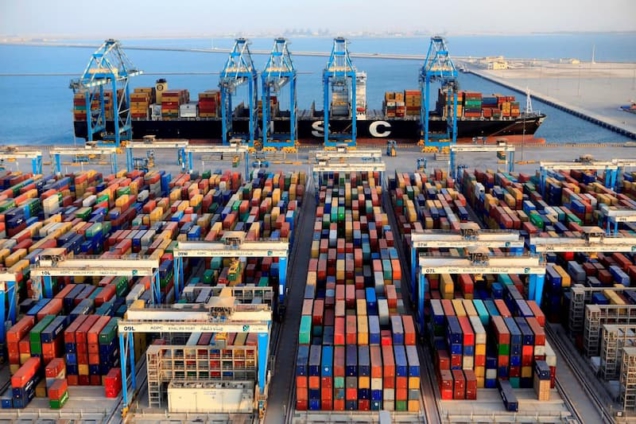A Research Consultant at IMANI Africa, Dennis Asare, says the underlying governance structure at Ghana’s Ports is responsible for the high incidences of corruption there.
According to him, the excessive influence of the executive arm of government and their interference in the management and decision making at the Ports has impaired the ability of the Ports to rid themselves of corruption.
He noted that due to the high level of political interference in Port operations, people and businesses that are politically exposed receive undue advantage when conducting business at the Ports.
Speaking on JoyNews’ PM Express he said, “If you look at it in terms of institutional architecture, despite the improvement in the system in terms of technology, and even infrastructure, you’ll see that the underlying governance system has not changed very much over the years.
“So you see excessive influence of the executive arm of government over decision making in the various institutions that manage our ports i.e. the Ghana Ports and Harbours Authority, the Ghana Revenue Authority, the Customs Division, and all other state agencies that work within the port.
“And when that happens, what we realize is that in terms of critical decision making like even advance ruling, critical decision making in terms of even exemptions, these become subject to some form of political influence. Politically exposed persons who are into business tend to leverage some of these influences to get undue advantage of some benefits within the port administration.”
His comments were in relation to the investigative report released by the Office of the Special Prosecutor earlier this week which revealed that Labianca Group of Companies, a frozen foods company owned by a member of the Council of State, Eunice Jacqueline Buah Asomah-Hinneh had a shortfall in import duties in excess of over one million Ghana cedis.
The OSP contended that Ms Asomah-Hinneh used her position as a member of the Council of State and member of the Board of Directors of the Ghana Ports and Harbours Authority (GPHA) to get a favourable decision from the Customs Division.
However, the Customs Division has refuted the Special Prosecutor’s claim against some of its officials in the case of Labianca Company.
The Commissioner of Customs, Col. Kwadwo Damoah (Rtd), who was indicted in the report accused the OSP of malicious intent with the aim to discredit the Customs officers.
Reacting to the OSP’s findings, Dennis Asare noted that it has served as tangible evidence to understand the various factors that drive corruption at the Ports.
“Then again when you look at it in retrospect, you’ll be able to identify the various underlying drivers in terms of multiplicity of institutions, lack of harmonization of functions and even duplication of roles within the port. That creates opportunity for corruption to happen.
“So what the OSP’s work has done is that it’s given us an extra evidence to understand the various factors that we identified to be driving corruption. So the factors we identified last year are not entirely different from what the OSP has,” he said.
Latest Stories
-
Leadership must be transformative – Otabil
5 minutes -
Being multi-skilled can be a hazard – Otabil tells young leaders
2 hours -
Tyler Perry did not wake up one morning to that level of support; he served his audience – Leila Djansi
2 hours -
Chief urges crackdown on underage and reckless motorbike riding in Asutifi North District
2 hours -
CARE Ghana, Cargill hand over agro-processing equipment to women producer groups in Ashanti, Central regions
2 hours -
Woman remanded for allegedly stealing GH¢800k mistakenly transferred to her account
2 hours -
Not everyone is meant to be a founder – Otabil urges youth to embrace purpose in service
2 hours -
Doris Boaduwaa bags hattrick in comeback win over Malawi
3 hours -
Final hours of Day 3 to secure unbeatable deals at Ecobank-JoyNews Habitat Fair
3 hours -
We are committed to a ‘Green Ghana’ – Prudential Bank MD
3 hours -
Nungua Town XI defeats Ghana Internationals in Kplejoo Pre-Festival Match
4 hours -
Osu Castle hosts diplomatic showcase of wellness as Ghana, India unites for International Day of Yoga
5 hours -
U.S. and Israeli Strikes on Iran: A Racist, Colonialist Assault on Sovereignty
6 hours -
Prof Gyampo clarifies interaction with Special Prosecutor over raid on SMS offices
6 hours -
Prof Gyampo called and texted OSP during raid on SML – OSP claims
6 hours

